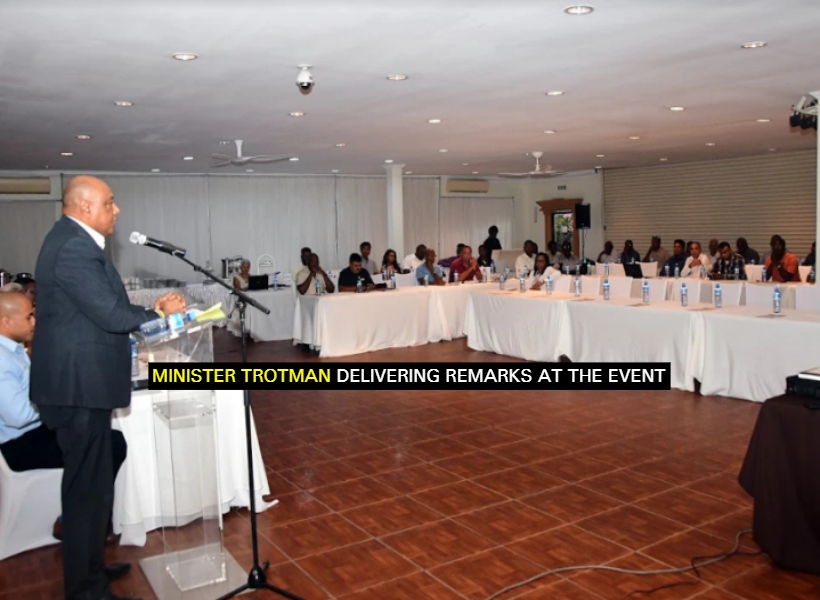The Government of Guyana (GoG) has accepted a proposal from mining stakeholders to embark on a joint project that will test the practicality and viability of alternative methods of gold recovery, as Guyana seeks to move away from the utilisation of mercury.
This was according to the Natural Resources Minister, Raphael Trotman, who was delivering remarks at a Guyana Gold and Diamond Miners Association (GGDMA)-organised symposium, being held at Parc Rayne, Rahaman’s Park.
The government has been moving to cut down on the importation of the product, while many have been calling for a more affordable and effective alternative.
GGDMA’s President, Andron Alphonso, said that the symposium was created to focus on the use of alternative technologies and techniques for better recovery and the reduction in the use of mercury in Guyana. He said that this is in keeping with the Association’s goals for 2020, which is to thoroughly and transparently explore all options available to miners to reduce the use of mercury in mining operations and to place miners on the path of reduced mercury use. The main aim of the symposium today was to help miners gain knowledge on how some of the available technologies work and to explore how they can help streamline operations and improve efficiency of mining.
The Ministry, through the Geology and Mines Commission (GGMC)’s inked a Memorandum of Understanding (MOU) with the Pesticides and Toxic Chemicals Control Board (PTCCB) and the Environmental Protection Agency (EPA) to strengthen protocols governing the importation of mercury.
According to Trotman, this pact will be in keeping with commitments made by President David Granger in 2017 for the phasing out/eradication of mercury use in signatories. At the time, President Granger was speaking at the first Conference of Parties (COP1) of the Minamata Convention held in Switzerland.
According to the United Nations (UN) Minamata Convention on Mercury document (http://www.mercuryconvention.org/Convention/Text), the Minamata Convention on Mercury is a global treaty to protect human health and the environment from the adverse effects of mercury. It was agreed at the fifth session of the Intergovernmental Negotiating Committee on mercury in Geneva, Switzerland on January 19, 2013 and adopted later that year on October 10, 2013 at a Diplomatic Conference (Conference of Plenipotentiaries), held in Kumamoto, Japan.
According to the World Health Organization (WHO), exposure to mercury – even small amounts – may cause serious health problems and is a threat to the development of the child in utero and early in life. Mercury may have toxic effects on the nervous, digestive, and immune systems, and on lungs, kidneys, skin, and eyes. Mercury is considered by WHO as one of the top ten chemicals or groups of chemicals of major public health concern.













